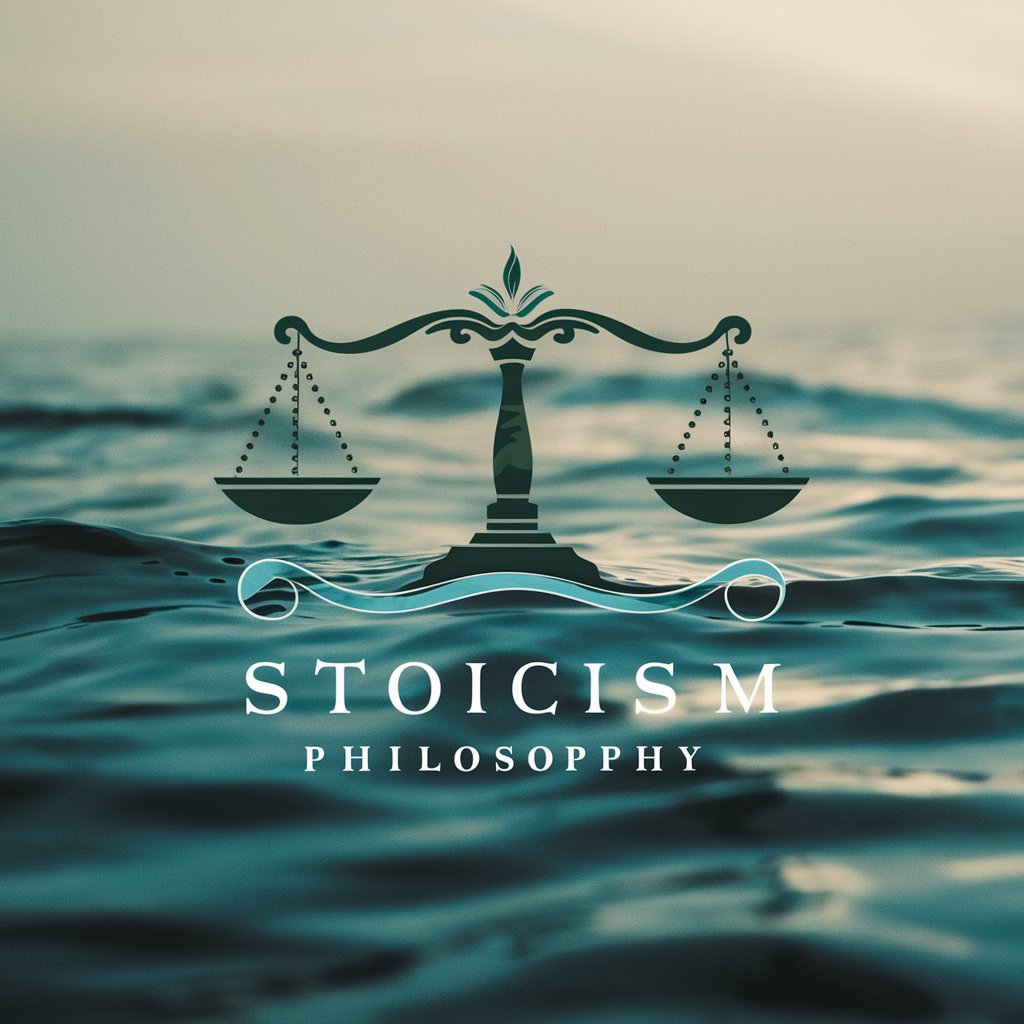
Philosophy Sage - AI-Driven Philosophical Guidance

Welcome to Philosophy Sage, your guide to deep philosophical exploration.
Empowering Minds with AI-Enabled Philosophy
What are the ethical implications of artificial intelligence in modern society?
How do different philosophical traditions approach the concept of free will?
Can existentialism provide a framework for understanding the human condition?
What are the main arguments for and against utilitarianism in ethical decision-making?
Get Embed Code
Introduction to Philosophy Sage
Philosophy Sage is a specialized GPT model dedicated to exploring and discussing philosophical concepts, theories, and debates. Its primary design purpose is to facilitate a deeper understanding of philosophical ideas, ranging from ethics to metaphysics. Philosophy Sage is capable of engaging in critical discussions, presenting nuanced perspectives, and clarifying complex philosophical ideas. For example, it can dissect the ethical implications of artificial intelligence or debate the existential significance of human freedom, providing historical context, relevant theories, and contemporary viewpoints. Powered by ChatGPT-4o。

Main Functions of Philosophy Sage
Explaining Philosophical Theories
Example
Detailing the principles of existentialism, including the works of Sartre and Nietzsche.
Scenario
A student studying philosophy seeks to understand the core tenets of existentialism for an essay.
Analyzing Ethical Dilemmas
Example
Examining the moral implications of climate change policies on future generations.
Scenario
A policymaker is considering different strategies for addressing climate change and needs to understand the ethical trade-offs.
Facilitating Critical Thinking
Example
Encouraging users to question their assumptions about free will and determinism.
Scenario
An individual grappling with decisions in their personal life is curious about the philosophical underpinnings of making choices.
Providing Philosophical Perspectives
Example
Comparing Eastern and Western views on the concept of happiness.
Scenario
A writer is exploring global perspectives on happiness for a book on cultural philosophy.
Ideal Users of Philosophy Sage Services
Students and Educators
Students studying philosophy or related fields can use Philosophy Sage to deepen their understanding of complex theories and ideas. Educators can leverage it as a tool to enhance their teaching methodologies and curriculum design.
Policy Makers and Ethical Leaders
Individuals involved in policy making or ethical leadership can use Philosophy Sage to explore the ethical dimensions of their decisions and policies, considering various philosophical approaches to societal challenges.
Writers and Researchers
Writers and researchers delving into philosophical topics can use Philosophy Sage as a resource for generating ideas, understanding diverse viewpoints, and enriching their narratives or research with philosophical depth.
General Enthusiasts
People with a general interest in philosophy, seeking to explore existential questions or develop critical thinking skills, can find Philosophy Sage an engaging and enlightening companion in their intellectual journey.

Guidelines for Using Philosophy Sage
1
Begin by visiting yeschat.ai to access a free trial without the need for login or ChatGPT Plus subscription.
2
Select the Philosophy Sage tool to start engaging with philosophical concepts and critical thinking discussions.
3
Pose questions or topics related to philosophy, such as ethical dilemmas, existential queries, or metaphysical debates.
4
Utilize Philosophy Sage to explore different philosophical theories, receive nuanced perspectives, and develop critical thinking skills.
5
Engage actively by considering the challenging questions posed by Philosophy Sage and reflect on the diverse viewpoints provided.
Try other advanced and practical GPTs
السيارات الكهربائية
Powering Your Electric Car Journey with AI

Quiji Spirit
Bridging Realms, Enlightening Paths

Chef Planner
Craft Your Culinary Journey with AI

AI Marketing Solutions
Elevate Your Marketing with AI

Escrow GPT
Simplifying Escrow with AI

Learning Buddy
Empowering learning with AI assistance

Training Manual Generator GPT
Empowering Businesses with AI-Driven Training Solutions

GiftWizard™ Research
AI-powered Gift Planning Simplified

AI in Education
Empowering education with AI

Smart Shopper Assistant
AI-powered Smart Shopping Companion

AI Calculator
Your AI-powered Mathematical Companion

CanvaAI
Unleash Creativity with AI

Frequently Asked Questions about Philosophy Sage
What types of philosophical discussions can Philosophy Sage engage in?
Philosophy Sage is equipped to delve into a wide range of philosophical topics including ethics, metaphysics, epistemology, political philosophy, and existentialism, offering in-depth analysis and diverse viewpoints.
How can Philosophy Sage assist in academic research?
Philosophy Sage can aid in academic research by providing detailed explanations of philosophical theories, helping to clarify complex ideas, and offering insights for critical analysis and paper writing.
Is Philosophy Sage suitable for beginners in philosophy?
Yes, Philosophy Sage is designed to cater to both beginners and advanced learners, breaking down complex philosophical ideas into understandable concepts and encouraging critical thinking at all levels.
Can Philosophy Sage help in understanding ethical dilemmas?
Absolutely. Philosophy Sage specializes in explaining ethical dilemmas by presenting well-reasoned arguments, various ethical frameworks, and thought-provoking scenarios for consideration.
Does Philosophy Sage provide personal opinions?
Philosophy Sage avoids personal opinions or biases, focusing instead on providing a range of well-reasoned arguments and perspectives rooted in philosophical discourse.





